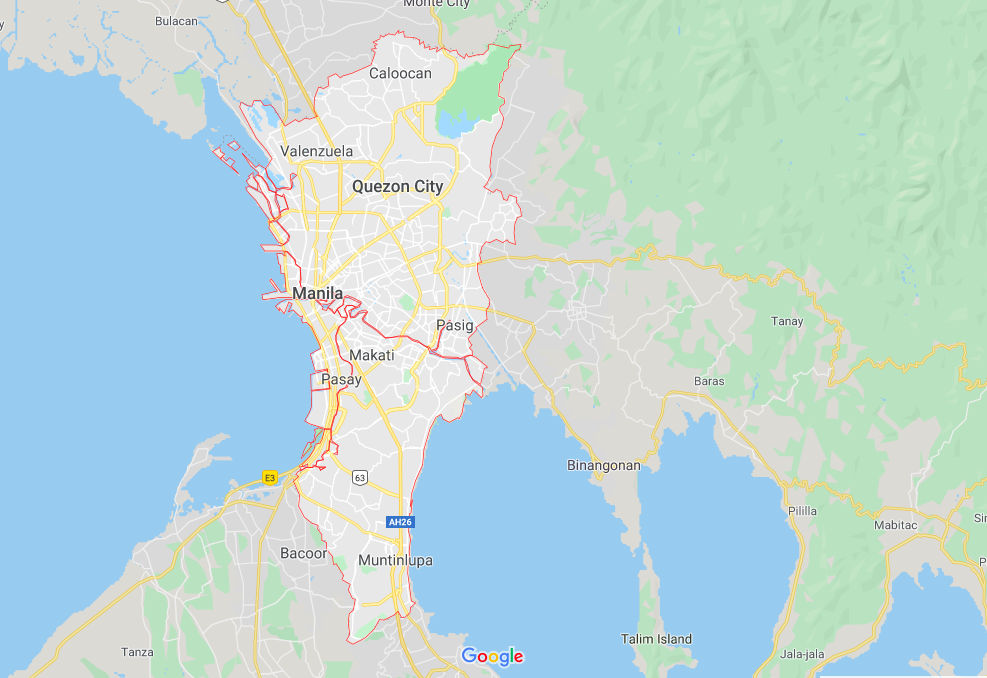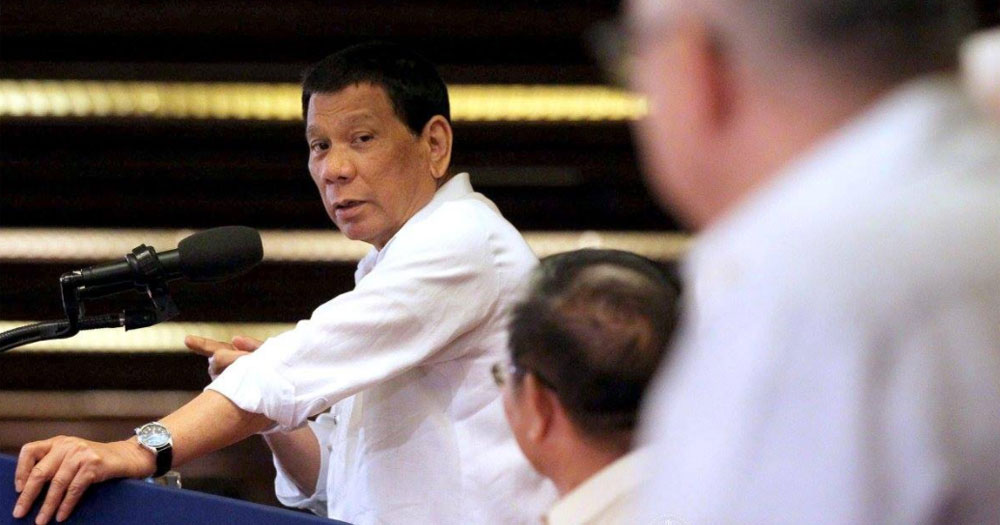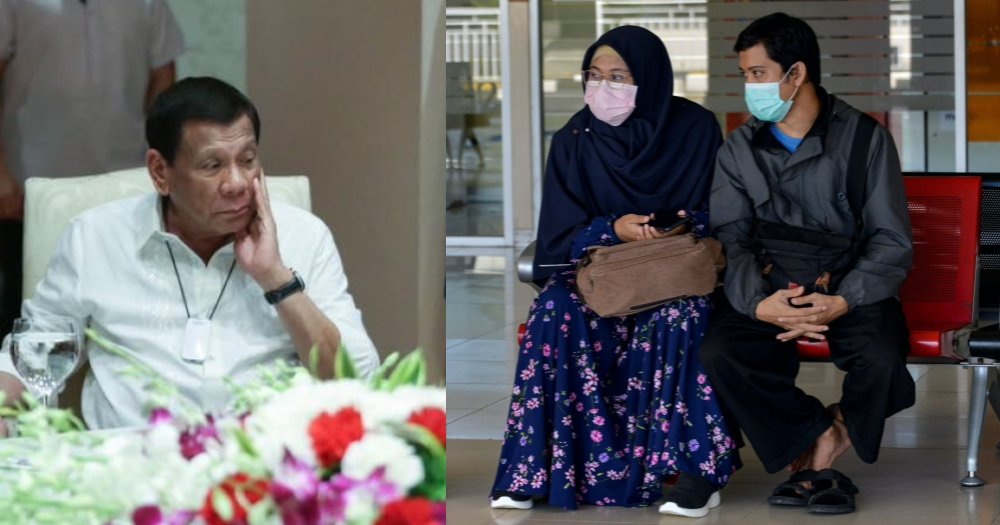Here is a fact about the Philippines:
The Philippines has 64 confirmed cases of Covid-19 as of Mar. 13, 2020, according to Manila Bulletin.
And here is a second fact about the Philippines:
There are now four confirmed cases in Singapore who declared travel history to the Philippines. These are cases 167, 172, and 178, announced on Mar. 11, and 184, announced on Mar. 12.
Of these four, one (178) was marked as an imported case by Singapore's Ministry of Health. He is the spouse of an Ng Teng Fong General Hospital emergency nurse (case 167), who made two trips to the Philippines, including one to visit a relative with pneumonia, who has since passed on.
She, on the other hand, made one trip.
The other two cases, 172 and 184, are linked to each other as well. Both were in the Philippines between late Feb. and early Mar.
Case 172 was there from Feb. 27 to Mar. 2, and case 184 was there from Feb. 24 to Mar. 1.
On the back of these two pieces of information, here's a look at what's happening over in the Philippines:
Metro Manila on lockdown, national health emergency declared
 This is the Metro Manila region, home to more than 12.8 million people. Screenshot via Google Maps
This is the Metro Manila region, home to more than 12.8 million people. Screenshot via Google Maps
For one thing, Philippine President Rodrigo Duterte announced a lockdown of the Metro Manila area on Mar. 12, according to SCMP.
From Mar. 15 to Apr. 14, all forms of travel to and from the region will be suspended, and mass gatherings have also been banned.
Just to give you an idea of the significance of this move:
Metro Manila is a region comprising 16 cities including the Philippines capital, Manila, which also happens to be the world's most densely-populated city, with over 42,000 people per square kilometre (Singapore's population density in 2019 was 7,866 people per square kilometre).
According to a 2015 census, the number of people living in the Metro Manila region is 12.8 million — so that's the number of people affected by this lockdown.
Earlier, on Mar. 9, Duterte declared the Covid-19 situation to be a health emergency, calling it "an emergency that threatens national security", according to The Straits Times (ST).
According to CNA, declaring an emergency facilitates the procurement of critical supplies as well as the implementation of quarantine measures.
Also, the Philippine Health Ministry has been on its second-highest level of alert, "code red sub level 1", since Mar. 7.
The limited availability of test kits
Here's another situation the Philippines is facing that may explain its low number of reported cases: the lack of actual testing being done.
The limited availability of test kits has been identified as a major constraint in the country's ability to tackle the outbreak.
According to ST, Philippine Health Secretary Francisco Duque explained that a perception among politicians that the Health Ministry was not doing enough was "largely because of our limited testing supplies".
ST reported that the Philippines's stock of 4,500 testing kits was down to just 2,000 by Mar. 9.
This means that the Philippines has had to look abroad for test kits. A supply of 2,000 kits is expected from the World Health Organisation and possibly more from China and South Korea.
Even Duterte tested for Covid-19 as precautionary measure
 Photo via Philippines Presidential Communications Facebook page
Photo via Philippines Presidential Communications Facebook page
And, we now learn that the President got himself tested for Covid-19 as a precautionary measure, after meeting with an official who came into contact with a confirmed Covid-19 case at another event, according to ST.
In a Facebook post on Mar. 12, Senator Christopher “Bong” Go, a former chief aide of Duterte’s, said this was "to ensure that we are fit and healthy to engage the public and perform our duties in the coming days and weeks".
Both Duterte and "Bong" Go have since tested negative for Covid-19.
Also, many Philippine government officials in self-quarantine
As of Mar. 12, ST reported that as many as 20 government officials had been self-quarantined. This includes six Cabinet ministers, nine senators, the governor of the central bank, three big-city mayors and a congressman.
Duterte is reportedly also considering self-quarantine in his home city, Davao, according to ST.
CNA reported that since Mar. 9, Duterte's security detail had imposed "a no-touch policy between the president and the public", quoting the commander of Duterte's security team, Jesus Durante.
Meanwhile, here's what's happening in Indonesia
Indonesia has 69 cases, after experiencing the highest single-day jump of 35 confirmed cases on Mar. 13, according to ST.
Indonesia had 34 reported Covid-19 cases as of Mar. 12, according to WHO's official figures.
Meanwhile, there are six confirmed cases in Singapore who declared travel history to Indonesia, including five Indonesian nationals (Cases 147, 152, 170, 181, 182).
There is also one Singaporean, case 153. While in Indonesia from Feb. 25 to Feb. 28, she visited her sister who had pneumonia.
All the Indonesian nationals were declared by the Ministry of Health to be imported Covid-19 cases from Indonesia, while the Singaporean case was labelled "likely to be imported".
Four of the Indonesian nationals (Cases 147, 152, 170, and 181) experienced symptoms prior to their arrival in Singapore.
Cases 181 and 182, who are family members, arrived in Singapore on Mar. 9 and tested positive for Covid-19 on the morning of Mar. 12.
Case 181 reported onset of symptoms on Mar. 8 while in Indonesia, while case 182 reported onset of symptoms on Mar. 9 after arrival in Singapore, according to an update from MOH on Mar. 13.
Indonesian official complained Singapore withheld personal information of cases here
Unfortunately, the Indonesians are unhappy with the Singapore authorities, claiming that Singapore has withheld personal information on their nationals in Singapore with Covid-19.
The secretary of the Health Ministry’s Disease Control and Prevention Directorate General, Achmad Yurianto, said to reporters on Mar. 12, as reported by The Jakarta Post:
“We have asked for the identities of the Indonesian nationals from Singapore. They did not give us the names. How are we going to conduct the tracing in Indonesia? Singapore is adamant on not disclosing their identities.”
In response, an MOH spokesperson told Mothership on Mar. 13 that Singapore has promptly shared information with Indonesia through the official International Health Regulations (IHR) channel on all the confirmed COVID-19 cases involving Indonesians, to facilitate contact tracing in Indonesia:
“Singapore and Indonesia are State Parties to the World Health Organization International Health Regulations (IHR).
Singapore has promptly shared information with Indonesia through the official IHR channel on all the confirmed COVID-19 cases involving Indonesians, to facilitate contact tracing in Indonesia.
The Indonesian IHR National Focal Point (NFP), who is an official from the Indonesian Health Ministry (KEMENKES), has acknowledged receipt of the all correspondences on these cases sent by Singapore’s IHR NFP.”
The Singapore Embassy in Jakarta also stated that the Singapore MOH has a “patient confidentiality and privacy policy”, The Jakarta Post also reported.
The Singapore Embassy added that “there are no restrictions for Covid-19 patients from Indonesia or other countries from contacting their embassies. It is up to them to decide whether they want to do so.”
Imported cases a concern for Singapore
Singapore has seen a rising number of imported cases from nearby Southeast Asian countries, even though many of these have very few reported cases.
This phenomenon hasn't gone unnoticed, and was even pointed out by National Development Minister and Co-chair of the Multi Ministry Taskforce for Covid-19 Lawrence Wong on Friday (Mar. 13). He said:
"We recognise that we also need more rigorous surveillance for this. And we are concerned about countries where there are few reported cases of the virus, but where we already see exported cases from these countries. And that includes countries around us."
Wong raised the examples of Indonesia and Malaysia, from which Singapore has six and at least four imported cases respectively.
He added that numbers from Malaysia may rise as contact tracing continues for attendees of a religious event attended by approximately 10,000 people, including 95 Singaporeans.
New precautionary measures to reduce imported cases
In the meantime, the government announced additional precautionary measures aimed at reducing the number of imported cases.
All travellers who arrive in Singapore and exhibit fever or respiratory symptoms will be issued a 14-day Stay-Home Notice (SHN). They will be required to serve out the SHN in full even if they do not test positive for Covid-19.
A ban on arriving individuals with travel history to Italy, France, Spain, and Germany in the last 14 days will also be implemented from Mar. 15, 2359 hrs. This is in addition to existing restrictions for those with travel history to mainland China, Iran, and South Korea.
Additionally, MOH has advised caution when travelling to countries affected by Covid-19, especially those with exported cases, including the Philippines, Indonesia, and the United Kingdom.
Related stories:
Top images via Bong Go on Facebook and via Getty images
If you like what you read, follow us on Facebook, Instagram, Twitter and Telegram to get the latest updates.
